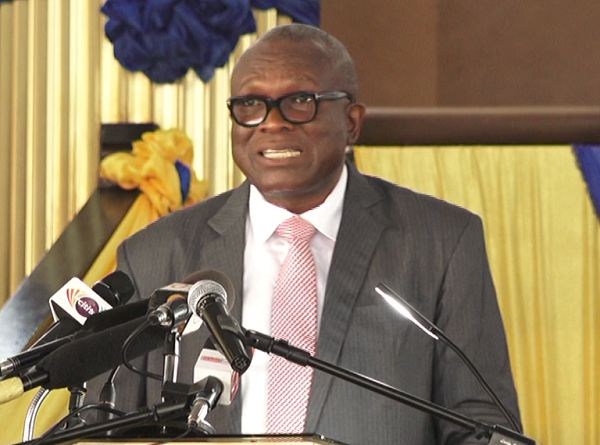
More commitment needed for election of MMDCEs
The 70th New Year School and Conference opened in Accra last Monday, with a call for more commitment to be made to see through processes for the election of metropolitan, municipal and district chief executives (MMDCEs).
A senior lecturer at the Political Science Department of the University of Ghana, Professor Joseph Atsu Ayee, who made that call, said the election of MMDCEs would be the best way forward to tackling the winner-take-all albatross that hung on the country's governance system.
He also said it would help improve inclusive governance and the participation of vulnerable groups in the local government system.
The New Year School is an annual event that has been organised by the School of Continuing and Distance Education of the University of Ghana over the past seven decades to help shape government policy and promote constitutional democracy.
This year’s event is being held on the theme: “Building strong institutions for democratic consolidation in Ghana.”
The law
MMDCEs are currently nominated by the President pursuant to Article 243(1) of the 1992 Constitution and Section 20(1) of the Local Government Act 1993, Act 462.
The law mandates that the MMDCEs, who serve as the political heads at the metropolitan, municipal and district assemblies (MMDAs), are to be approved by a two-thirds majority of members of the assembly.
Currently, the government has activated the process for the amendment of the constitution and a referendum to pave the way for the MMDCEs to be elected after 2021.
Support MMDCE election
In his keynote address at the New Year School and Conference, Prof. Ayee called for support from all stakeholders to facilitate the processes for the election of the MMDCEs.
He said it was the way forward to give real meaning to the local government system and also rid it of unnecessary partisan politics.
“We have had more than a decade of local government but political and economic decentralisation is still lagging because the central government still dictates the process. The central government gives resources to the assemblies with one hand and collects with the other because decisions on the District Assemblies Common Fund (DACF) are taken at the central level, leading to recentralisation,” he said.
He observed that the election of MMDCEs would create an opportunity for inclusive governance and enhanced participation by minority political parties and marginalised groups.
Prof. Ayee said the election of MMDCEs would improve accountability at the grass roots and also help to address conflicts between Members of Parliament (MPs) and the MMDCEs.
Strong institutions
The Pro-Vice Chancellor for Academic and Student Affairs at the University of Ghana, Prof. Samuel Kwame Offei, said more efforts ought to be placed on building strong institutions at all levels of governance to ensure sustainable development.
He also called for investment in the human resource potential of the country to promote governance at the national and local levels.
“The country needs a crop of leaders who will challenge the status quo because they themselves are above reproach,” he said.
The acting Provost of the College of Education and Dean of the School of Continuing and Distance Education of the University of Ghana, Prof. Michael Ayitey Tagoe, said the focus of this edition of the New Year School, which was on building stronger institutions, was to underscore the important role such institutions played in transforming the country and deepening democracy.
He called on members of the public to be responsible in their actions, saying “strong institutions need responsible citizens.”
The Chairman of the University of Ghana Council, Prof. Yaw Twumasi, was happy that over the years the Annual New Year School had contributed significantly towards shaping policies and governance as well as the growth of democracy in the country.
